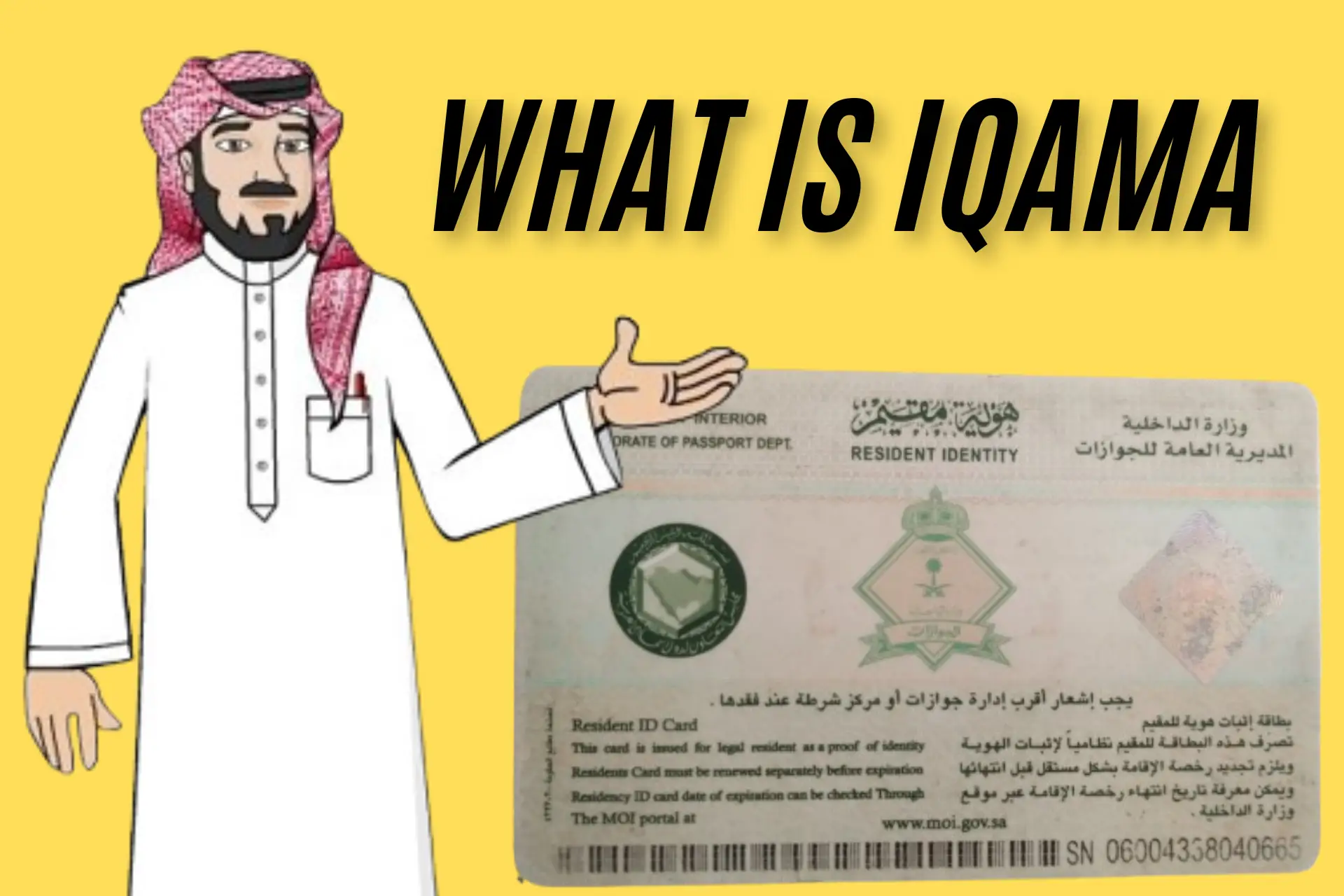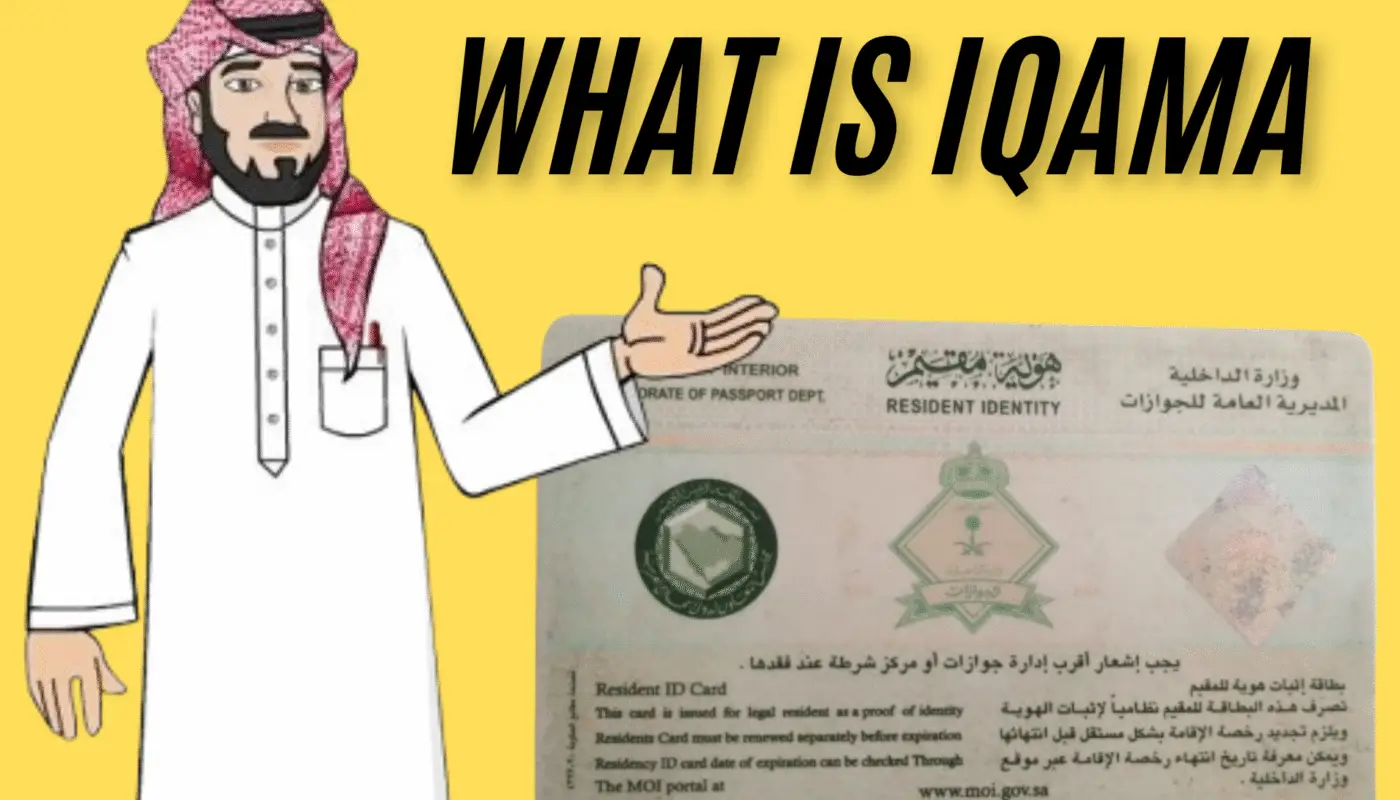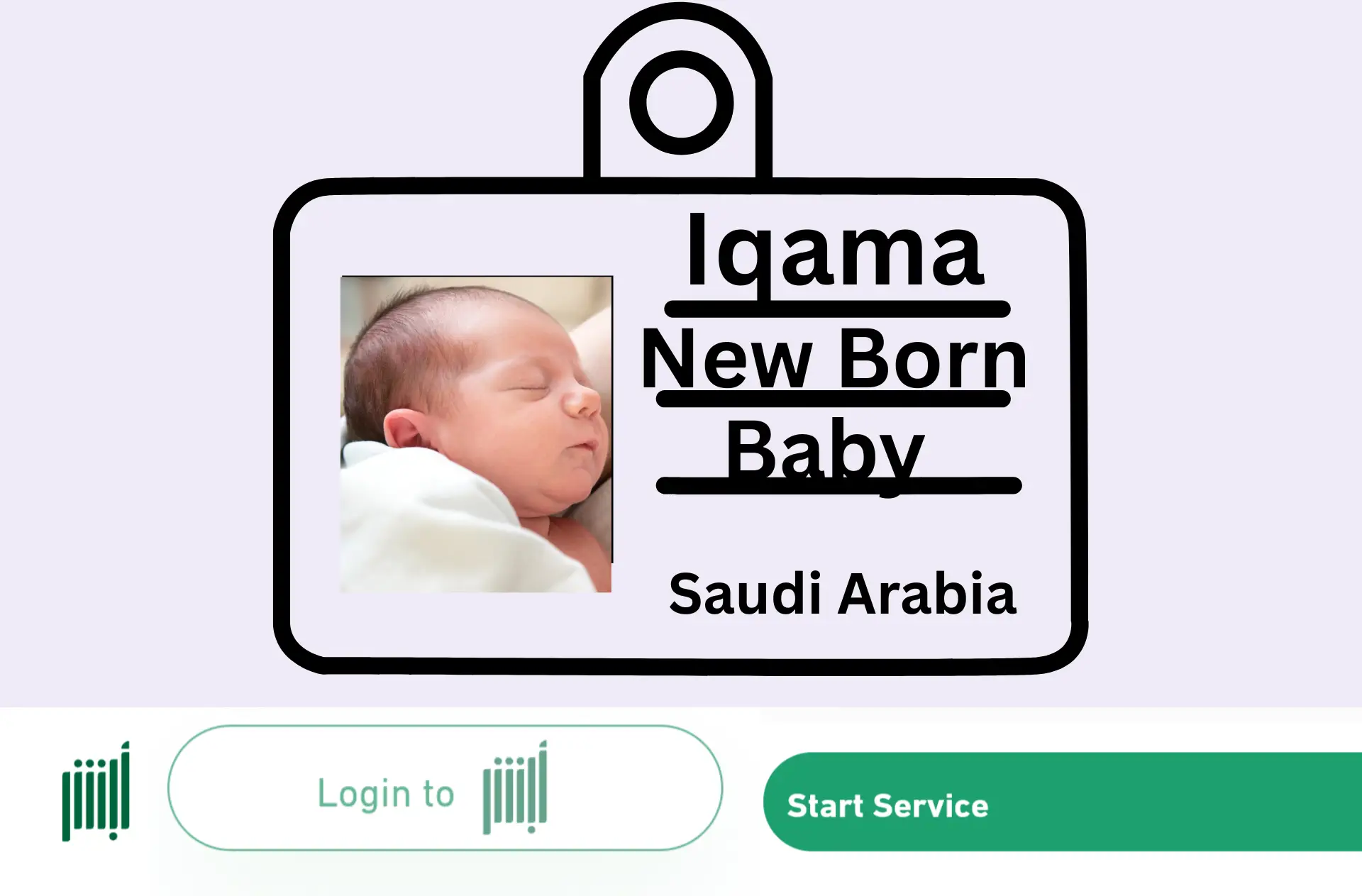![]() Written by Waqas | ⏱️ Read Time: 12 minutes | 📅 Last Updated: Aug 13, 2025
Written by Waqas | ⏱️ Read Time: 12 minutes | 📅 Last Updated: Aug 13, 2025
Table of Contents
Introduction
Iqama often referred to as a residence permit, expat ID, or Saudi residency card, this official identification is essential for daily life in the Kingdom. From opening a bank account to applying for a SIM card or renting a home, it’s your proof of legal status as a foreign resident.
In this guide, we’ll walk you through everything you need to know — in clear, simple terms — whether you’re just arriving or planning your move to Saudi Arabia.
What Is an Iqama?
What Is an Iqama?

An Iqama is the official residency ID card issued to expatriates who live and work in Saudi Arabia. It serves as your legal proof of residence and is linked to your sponsor or employer. Without it, you cannot legally stay in the country long term or access most government and private services.
This card contains important details like your name, nationality, job title, employer name, and Iqama number. It’s required for everything from medical visits to banking, housing, and mobile services. Essentially, it’s your gateway to functioning day-to-day in Saudi society.
Why It’s Important
| Service or Access | Why It’s Needed |
|---|---|
| Opening a bank account | Required for verification and compliance (KYC) |
| Getting a SIM card | Needed to register your mobile line legally |
| Absher platform | Used for accessing digital government services |
| Driver’s license application | Proof of legal residence is mandatory |
| Renting a home | Landlords require it to validate tenant identity |
| School admissions | Needed for enrolling children in education systems |
| Family visa application | Required to sponsor dependents legally |
The table above highlights some of the essential services and activities in Saudi Arabia where having a valid residency card is mandatory. Whether it’s opening a bank account, applying for a driver’s license, or enrolling your children in school, this document is crucial for your daily life and legal compliance.
Knowing where and why this identification is needed will help you avoid fines and penalties. Up next, we’ll take a closer look at the different types of residency permits available and how they fit various situations.
Types of Iqama
Saudi Arabia issues several different types of residency permits depending on your purpose of stay, job, and sponsorship. While the exact categories can vary, here are some of the most common types you might encounter:
Each type has its own requirements and benefits. Knowing your Iqama type helps you understand your rights and obligations while living in the Kingdom.
Validity and Renewal of Residency Permits
Residency permits in Saudi Arabia are generally valid for one year and must be renewed annually to maintain legal residency status. It’s important to renew your permit before it expires — preferably at least three days in advance — to avoid fines or penalties.
Failure to renew on time can lead to escalating fines starting from SAR 500, doubling with repeated offenses, and may ultimately result in deportation for persistent violations.
Renewal processes usually involve submitting updated documents and fees through the Absher platform, Saudi Arabia’s official e-services portal. Staying up to date with renewal deadlines ensures uninterrupted access to essential services and legal protections during your stay.
How to Obtain an Iqama
Obtaining a residency permit in Saudi Arabia typically involves collaboration between the expatriate and their sponsoring employer. The employer usually handles the application process by submitting the necessary documents to the Ministry of Interior.
Common requirements include:
- A valid work contract
- A medical fitness certificate
- Proof of health insurance
- A valid work visa
Once submitted, the process can take anywhere from a few days up to several weeks, depending on how quickly the paperwork is processed.
It’s essential for expatriates to stay in touch with their employer during this process to ensure timely updates and to receive it as soon as it is issued.
Why Carrying Your Residency Card Matters
In Saudi Arabia, it is mandatory to carry your residency card at all times. Authorities may ask to see it during routine checks, and failure to present this document can lead to fines starting from SAR 1,000, increasing with repeated offenses.
Carrying your card ensures you can easily access services like:
- Police verification
- Travel checkpoints
- Banking transactions
- Health care facilities
Always keep your Iqama handy to avoid penalties and ensure smooth daily activities in the Kingdom.
Common Uses of the Residency Permit
The residency card is your key to accessing many essential services in Saudi Arabia. Here are some of the most common scenarios where having this document is required:
| Opening a bank account |
| Applying for a driver’s license |
| Registering a mobile SIM card |
| Renting or buying property |
| Enrolling children in school |
| Obtaining family visit or permanent visas |
| Accessing government platforms like Absher and Qiwa |
Being aware of these uses will help you understand the importance of keeping your residency permit valid and accessible.
Penalties for Not Carrying or Renewing Your Residency Permit
Failing to carry your residency card or renewing it on time can lead to serious consequences in Saudi Arabia. Authorities impose fines starting at SAR 1,000 for the first offense of not having your card available when asked. Repeat offenses increase the fines and can reach up to SAR 3,000.
If the permit expires without renewal, fines begin at SAR 500, doubling with each violation. After the third offense, the resident may face deportation from the country.
To avoid these penalties, always keep your permit on you and renew it promptly before the expiry date.
How Long Does It Take to Get an Iqama?
The time to receive your residency permit can vary widely. Typically, it depends on how quickly your employer submits the required documents to the Ministry of Interior.
The process can take anywhere from one day to three months. Factors affecting timing include the completeness of paperwork, medical test results, and any government processing delays.
To learn more about the timelines and tips for speeding up the process, check out our detailed guide on How Long Does It Take to Get an Iqama?
Make sure your employer handles the paperwork promptly and that you provide all needed documents without delay.
Iqama and Family Sponsorship
If you plan to bring your family to Saudi Arabia, understanding the sponsorship rules is essential. Your residency permit allows you to sponsor your spouse and children for residence in the Kingdom.
Family members require their own residency permits, which are linked to your sponsorship. Keep in mind:
- Children above 18 years usually need separate work or residency permits.
- Sponsorship applications involve submitting proof of relationship, health certificates, and other documents. You can learn more about family sponsorship on the official Saudi Ministry of Interior website.
- Family permits must be renewed alongside your own residency card to remain valid.
Sponsoring your family ensures they can live, study, and access healthcare in Saudi Arabia legally.
FAQs
Can I update my job title or employer information on my residency permit without leaving Saudi Arabia?
Yes, changes like job title or employer can be updated through the Ministry of Interior’s online services, provided you have the employer’s approval.
What happens to my residency permit if I lose my job?
You have a grace period (usually 60 days) to find a new sponsor or job before you must leave the country or face penalties.
Can I hold multiple residency permits if I have different jobs or businesses?
No, Saudi Arabia issues only one residency permit per individual, linked to a single sponsor.
Is it possible to apply for residency renewal while outside Saudi Arabia?
Renewals generally require presence in the country, but in some cases, your sponsor or employer can handle the process on your behalf.
How does marriage to a Saudi citizen affect my residency status?
Marriage can allow you to transfer your residency sponsorship from an employer to your spouse, simplifying residency procedures.



Hello, I enjoy reading all of your post. I wanted to write a little comment to support you.
Pretty! This has been an incredibly wonderful post. Thank you for providing this information.
Hi to every body, it’s my first pay a visit of this weblog; this weblog contains remarkable and genuinely excellent material designed for readers.